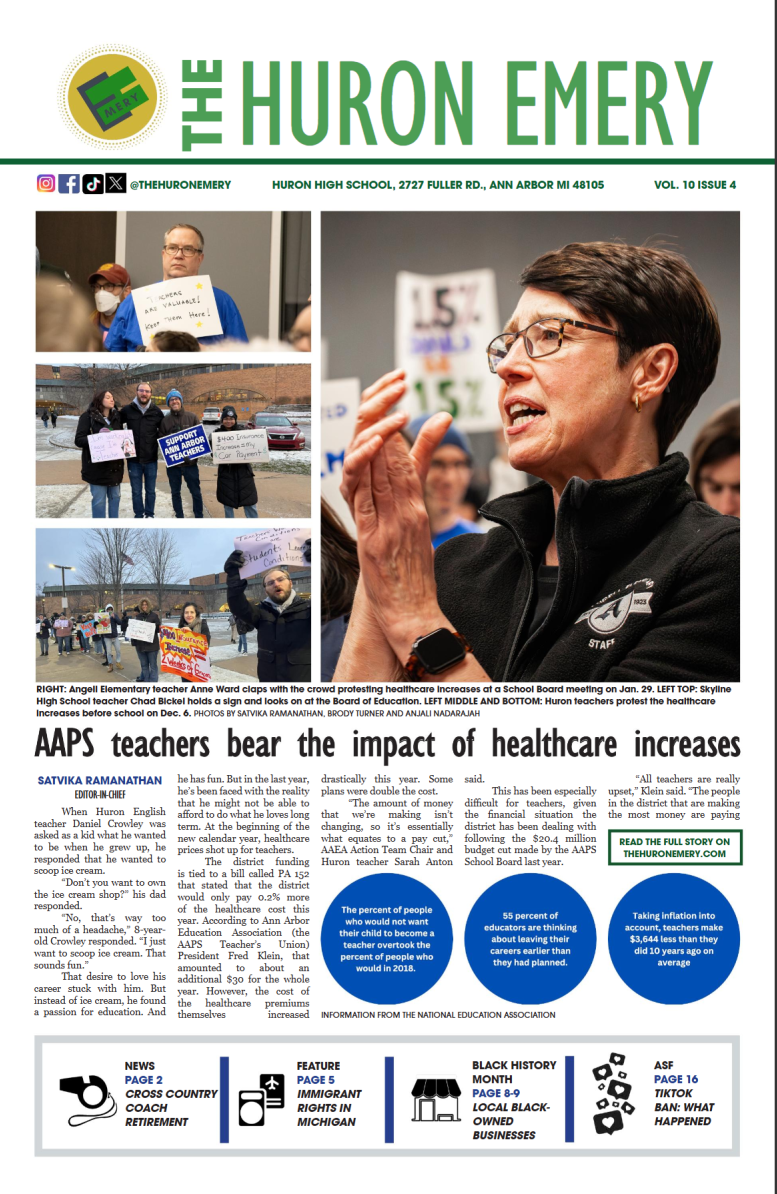All opinions matter
The term “hate speech” is problematic and freedom of expression must be protected for all
December 15, 2019
As someone who holds opinions that are unpopular and controversial, I know the importance of freedom of speech. It is important that I am able to express my views, because it allows those who disagree with me to gain more perspective when it comes to knowing about what the other side thinks. It leads people to become more moderate after learning that the other side isn’t evil, which is a terrible misconception in this day and age. The acceptance of differences of opinion has been one of the things that has made the U.S. so great in the past, and I hope to see the continuation of this trend.
Freedom of expression must be protected at all costs. Ideas must be allowed to be discussed and debated.
What if you couldn’t express dissatisfaction with President Trump (or any previous presidential administrations) or his policies due to fear of retaliation from the government? It’s hard to imagine, isn’t it? For many around the world, expressing dissatisfaction with leaders is dangerous. It can result in a strong and brutal retaliation from the government, including (in some places) imprisonment or possibly worse.
The First Amendment to the Constitution protects us. It states that “Congress shall make no law respecting an establishment of religion, or prohibiting the free exercise thereof; or abridging the freedom of speech, or of the press; or the right of the people peaceably to assemble, and to petition the Government for a redress of grievances.”
Therefore, so-called “hate speech” laws are problematic. The term “hate speech” is completely subjective and the definition could vary from person to person. Such laws leave the door open for abuse by someone in power to use as a means to go after political opponents simply by declaring their speech to be “hateful” based off of some ridiculous standard. Some speech is, in fact, hateful. However, it should still be allowed to be said. The government should not be involved in what someone can or can’t say due to the potential that it could spiral into the government simply censoring any speech it doesn’t like.
There have been too many examples of authoritarian leaders taking power throughout history by trying to control the speech (as well as other violations of human rights) of their subjects. Any step in the direction of censoring speech is one step too many. It could potentially snowball into something way worse.
There are several cases in which speech is not protected, however. These are cases of libel and slander, where someone and/or a publication publishes lies about someone, defaming their name and taking down their reputation; direct calls to violence where the speech in question directly threatens to harm another person, and unnecessarily inciting chaos. These are an exception to the rule, and do not validate arguments for speech to be censored. In fact, some of the examples I just provided are a bit vague. When I refer to “libel” and “slander,” I am referring to cases where it can be proven beyond a doubt where it significantly smears the character, honor, and reputation of the victim and not a mistaken detail that was quickly retracted upon finding out the whole truth. One can’t deliberately lie about someone and get away from it if one works in media: the media will be held accountable by the public to a basic standard of accuracy.
Free speech is not something unique to the U.S. It is a universal concept, as stated by the Universal Declaration of Human Rights, which states “Everyone has the right to freedom of opinion and expression; this right includes freedom to hold opinions without interference and to seek, receive and impart information and ideas through any media and regardless of frontiers.”
Freedom of expression plays a key role in a free society. It is important to be able to express our own views without fear of censorship or retaliation, no matter how controversial they may be. It is a human right for everyone and it must be protected. It must be protected everywhere, from the classroom to public forums to public spaces to work spaces to places of worship.











Uthman • Feb 24, 2020 at 9:10 am
I agree. It is clearly stated in the constitution that free speech is entitled to all. While I do believe there should be limitations, for the most part people should be able to say whatever, as this is just a basic human right.
Tenasia Brown • Feb 24, 2020 at 8:57 am
It’s very Important that very one can speak their OPINION and it’s matter. No matter how dumb or stupid it sounds IT MATTER!!!!
Eliot Dimcheff • Feb 24, 2020 at 8:12 am
Free speech is an issue often debated these days, as many people are quite defensive about what others say about them and the things they like. I mostly agree with your opinion on hate speech, that it could be weaponized to target ‘seditious’ speech. I feel also that the media should be truthful in all endeavors but that libel laws could also be used to target publications that speak ill of the powerful, though such laws would only ever need be abolished in a legal system that would not perform due process to find the truth of the matter. Beyond news publications that lie, though, I think that most speech should be legal, no matter the content, as it protects the integrity of democracy all over the world.
Riley Ricketts • Feb 24, 2020 at 8:11 am
I really enjoyed this article. I think that it was a very important topic to talk about. I liked the amount of facts and examples you gave to help explain yourself.
Alex Cole • Feb 24, 2020 at 8:03 am
I really like the whole idea and view of this article. I believe that free speech is a right that must come first. It allows people to express themselves and their views. I also really loved how the author addressed the speech that isn’t protected like libel and hate speech. Overall I thought this was a very well written piece that not only promoted the right to free speech and a free society, but also to showcase when free speech is not protected.